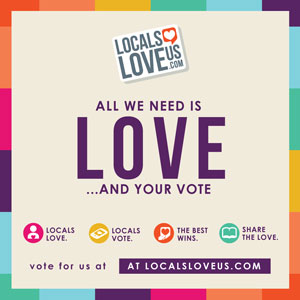Why is everyone freaking out about ChatGPT?

There’s been a lot of talk about ChatGPT lately and how AI (Artificial Intelligence) is poised to take over the world. A colleague of mine mentioned concerns about how chat bots will affect online search and what that means for optimizing their website content so it remains relevant in search results.
My first thought was, “Why am I still in this business? It changes way too fast for me to attempt to keep up.”
After some reflection (aka Oreos), I realized that yes, this will impact how people find information on the web. But, at least for now, the intent of the user when they are searching remains the same. In optimizing content for well-defined users (and by association their search intentions), that fundamental process is unchanged.
So let’s keep focus on our users’ intentions by looking at how our web content matches those intentions.
How do we best optimize web content?
First, some definitions. When I say “optimize web content” I’m talking about how to create content that will help your website reach a high position on search result pages, such as Google and others. This means that the people who are searching will see your results first. If you end up in the second page of search results, chances are no one will notice. Another term for this is “organic search” or “Search Engine Optimization” (SEO).
This is different from “paid search” or “Search Engine Marketing” (SEM). Both of these terms refer to buying ads that show up on search result pages. This is not “in my wheelhouse” as the cool kids say, but I have an excellent colleague to refer you to who not only will get you awesome results, but he also has a high degree of integrity which is especially important to have in the paid search market.
With organic search, the terms you use in your content are the key to ranking high in search results. We all know that the search engine giant is Google and therefore they drive the search market. Their algorithm for determining how websites rank in search engine results is like teenage fashion trends: a complete mystery. But in general, there are some key factors to consider. Here are the ones I tend to focus on:
- Before even starting to think about SEO, make sure you have a technically solid website that is easy to navigate and pleasantly inviting. There is no point in getting people to click through on your search result link only to find a less than appealing or confusing website. This includes basics like decent site speed, Google Analytics code, an active SSL certificate, and alt tags for images. (If you host with me, all of these basics are included btw.)
- Keep the focus on your users, in other words, the one to three target audiences who you want to land on your website. Be as specific as possible. Define what these users are looking for and why. Define what it is they most want in their results. For example, if you own a coffee shop in North Liberty, your target audience is people who like to drink coffee who live or work in North Liberty. You definitely want to rank high for “coffee North Liberty.” For non-profits, it can be tougher. You’re not only trying to attract people who use your services, you’re also trying to attract prospective donors and volunteers. In my experience, this is accomplished through a broader set of public relations and marketing. My suggestion is to optimize for the mission/service you provide, and then drive donors and volunteers to your website through other efforts, keeping in mind that you want your website to be as quick and easy to use as possible for donors and volunteers.
- In general, Google will rank your site better if you have more links from other websites back to your website. Contact your community partners, sponsor organizations, vendors, reviewers, etc. and ask them to link back to your website. You will also want to maximize links back to your site via your social media marketing efforts.
- There’s no point in trying to “fake it” with Google. If you force keywords into your copy, not only will Google see it and downgrade you, more importantly your website visitors will feel your inauthenticity and will be turned off. The absolute best way to improve your search engine results is to have the best possible website.
Do you think your website needs to be examined for optimal content? I’d love to hear from you! We can talk through ways to improve your content and overall marketing efforts in a way that works for you.

